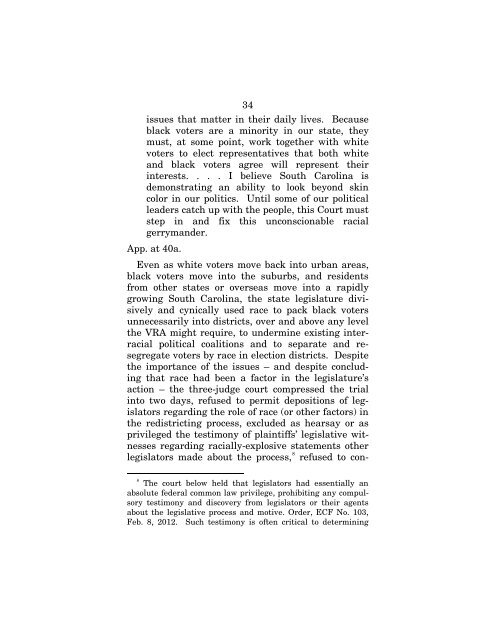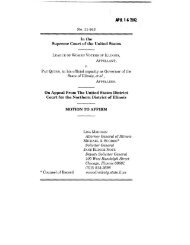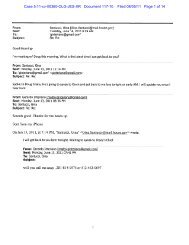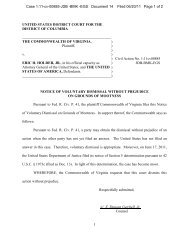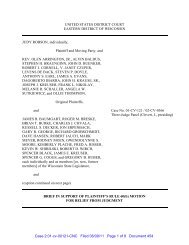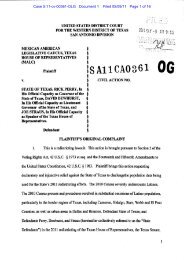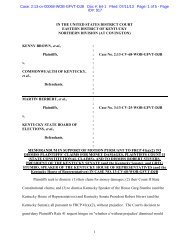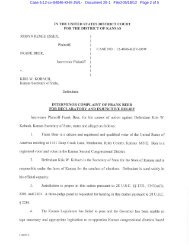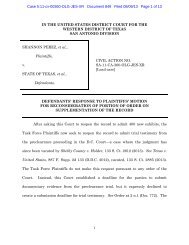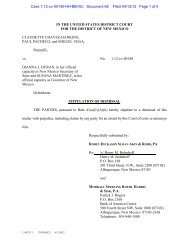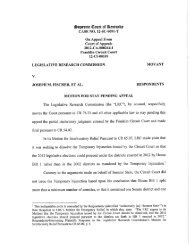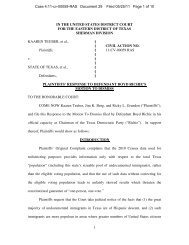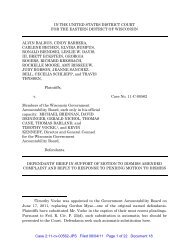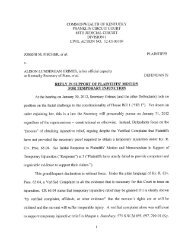Jurisdictional statement - About Redistricting - Loyola Law School
Jurisdictional statement - About Redistricting - Loyola Law School
Jurisdictional statement - About Redistricting - Loyola Law School
You also want an ePaper? Increase the reach of your titles
YUMPU automatically turns print PDFs into web optimized ePapers that Google loves.
34<br />
issues that matter in their daily lives. Because<br />
black voters are a minority in our state, they<br />
must, at some point, work together with white<br />
voters to elect representatives that both white<br />
and black voters agree will represent their<br />
interests. . . . I believe South Carolina is<br />
demonstrating an ability to look beyond skin<br />
color in our politics. Until some of our political<br />
leaders catch up with the people, this Court must<br />
step in and fix this unconscionable racial<br />
gerrymander.<br />
App. at 40a.<br />
Even as white voters move back into urban areas,<br />
black voters move into the suburbs, and residents<br />
from other states or overseas move into a rapidly<br />
growing South Carolina, the state legislature divisively<br />
and cynically used race to pack black voters<br />
unnecessarily into districts, over and above any level<br />
the VRA might require, to undermine existing interracial<br />
political coalitions and to separate and resegregate<br />
voters by race in election districts. Despite<br />
the importance of the issues – and despite concluding<br />
that race had been a factor in the legislature’s<br />
action – the three-judge court compressed the trial<br />
into two days, refused to permit depositions of legislators<br />
regarding the role of race (or other factors) in<br />
the redistricting process, excluded as hearsay or as<br />
privileged the testimony of plaintiffs’ legislative witnesses<br />
regarding racially-explosive <strong>statement</strong>s other<br />
legislators made about the process, 8<br />
refused to con-<br />
8<br />
The court below held that legislators had essentially an<br />
absolute federal common law privilege, prohibiting any compulsory<br />
testimony and discovery from legislators or their agents<br />
about the legislative process and motive. Order, ECF No. 103,<br />
Feb. 8, 2012. Such testimony is often critical to determining


